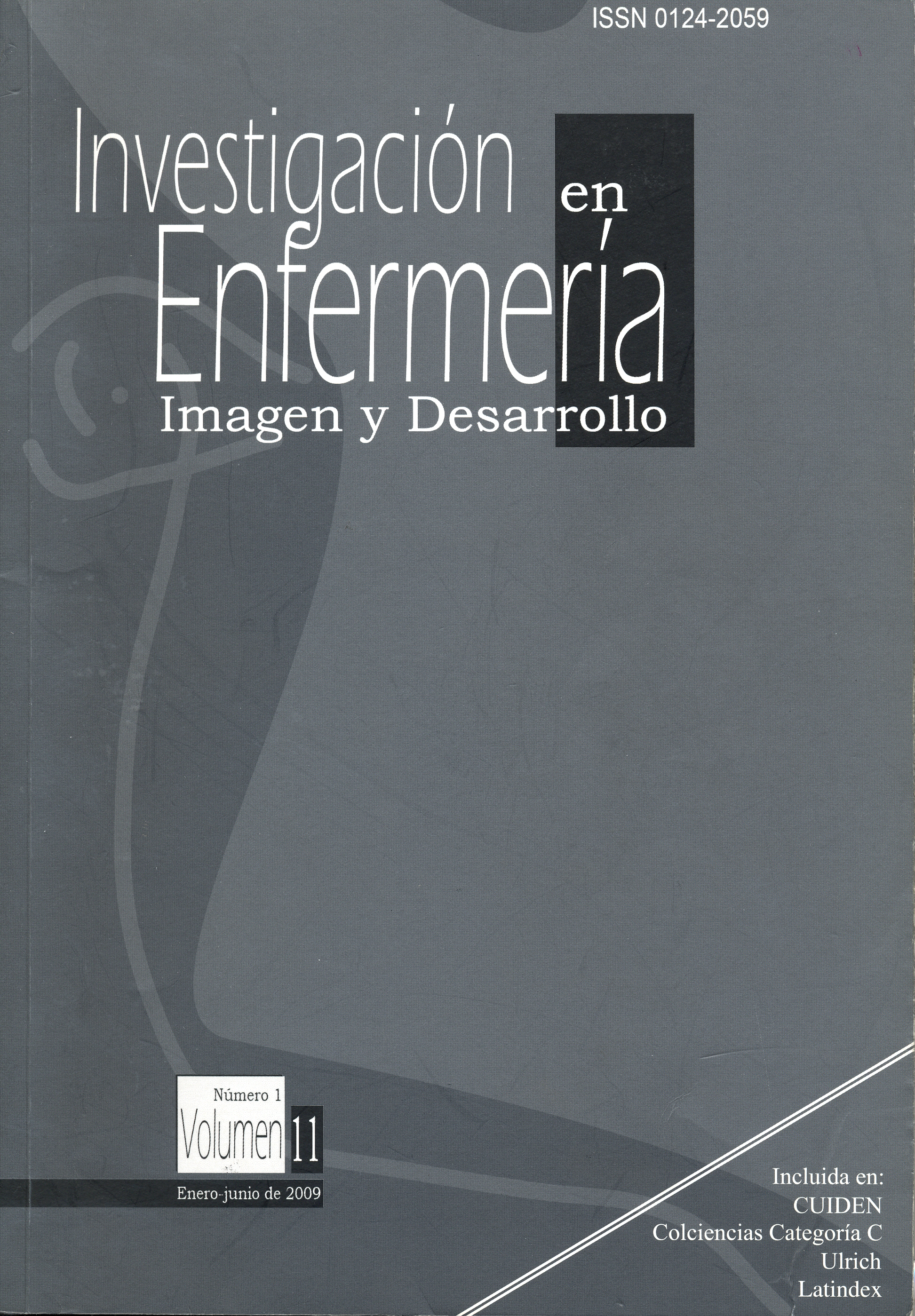Abstract
To determine the relationship between performance in the examination of quality of higher education (ECAES) of the students in the nursing career, and academic performance shown during their studies and/or certain demographic characteristics, a descriptive correlational retrospective study was conducted in a convenience sample of 85 students in 2003, stuying the final year of the nursing career in a private university in Colombia. The data for each student was obtained from the university Infroamtion System and the Institutional Report (Report 4) developed by the Colombian Institute for the Promotion of Higher Education (ICFES), processed with the statical program Stata 6.0 Atatistical univariate and bivariate. It was found in the studied sample. That there is a moderate (47%, p<0.05) between the score obtained in ECAES and the accumulatedd score in the weighted average number of students nursing career presenting the review in November 2003 and the 22% (p<0.05) of the variation in scores is explained by variations in the averages. Age had an inverse relationship (p<0.05) with the scores achieved in ECAES, being 8% of variability in scores explained by age. It is worth noting that although there is a statistically significant linear relationship (p<0.05) between variables, the simple linear model that contains does not show a good fit, indicating the need to review with new studies, the potential contribution of other variables not explored, to the explanation of performance shown by students on standarized tests that seek to provide the qualifications of higher education programs of Nursing.
The journal Investigación en Enfermería: Imagen y Desarrollo is registered under a Creative Commons Attribution 4.0 International Public License. Thus, this work may be reproduced, distributed, and publicly shared in digital format, as long as the names of the authors and Pontificia Universidad Javeriana are acknowledged. Others are allowed to quote, adapt, transform, auto-archive, republish, and create based on this material, for any purpose (even commercial ones), provided the authorship is duly acknowledged, a link to the original work is provided, and it is specified if changes have been made. Pontificia Universidad Javeriana does not hold the rights of published works and the authors are solely responsible for the contents of their works; they keep the moral, intellectual, privacy, and publicity rights.
Approving the intervention of the work (review, copy-editing, translation, layout) and the following outreach, are granted through an use license and not through an assignment of rights. This means the journal and Pontificia Universidad Javeriana cannot be held responsible for any ethical malpractice by the authors. As a consequence of the protection granted by the use license, the journal is not required to publish recantations or modify information already published, unless the errata stems from the editorial management process. Publishing contents in this journal does not generate royalties for contributors.


